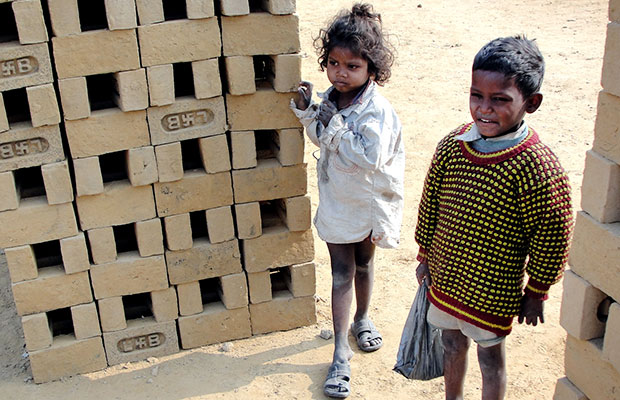
Education and New Hope for Migrant Youth
In the slums of Vadodara, India, children are a precious commodity. Sent out by their parents to beg for money, toil on brick farms, or even commit petty theft, they bring in desperately-needed cash to help support their families. But they pay a big price: significant loss of hours in school, where they could instead begin building the foundation for a brighter future.
Most of these children are from families of migrant workers, who have traveled to this third-largest city in the state of Gujarat from surrounding rural areas. In response, Salesian missionaries have created a new program that promises to re-introduce these children to the classroom and support their success. The program is part of Don Bosco Snehalaya, which has been providing education, social development, and child rights advocacy in Vadodara and beyond since 2001.
Ultimately, Salesian missionaries envision the construction of a central educational center. But first, they must work to calm fears and gain the trust of parents, to help them understand the importance of educating their children.
“Parents need counseling, as they are unwilling to send their children to schools,” says Karan Patel, a volunteer teacher with the project. “Some of the children are actually enrolled in municipal schools, but remain absent.” In fact, a survey of nearly 60 families in Nizampura, a large Vadodara slum, revealed that close to 30 children between the ages of 8 and 18 were not in school.
“Parents simply don’t see the value in education when the payoff for sending their children to work is immediate,” she adds.
To help overcome this barrier, Salesian missionaries and volunteers travel directly to where the children live and offer classes in the presence of their parents. By doing so, families can experience first-hand the benefits and joy of learning — and begin to understand the long-term advantages in terms of their children’s financial independence and security. In addition to traditional schoolwork, educators offer training in chocolate-making, dental hygiene, computer science, and other marketable skills. This will enable older students to quickly find employment after graduation.
“Many impoverished youth see little opportunity for a better life,” says Father Mark Hyde, director of Salesian Missions. “Innovative programs like these offer the hope and skills they need to work their way from poverty to independence.”
In India and around the world, our mission helps children and families break the cycle of poverty through education. What’s your mission?

